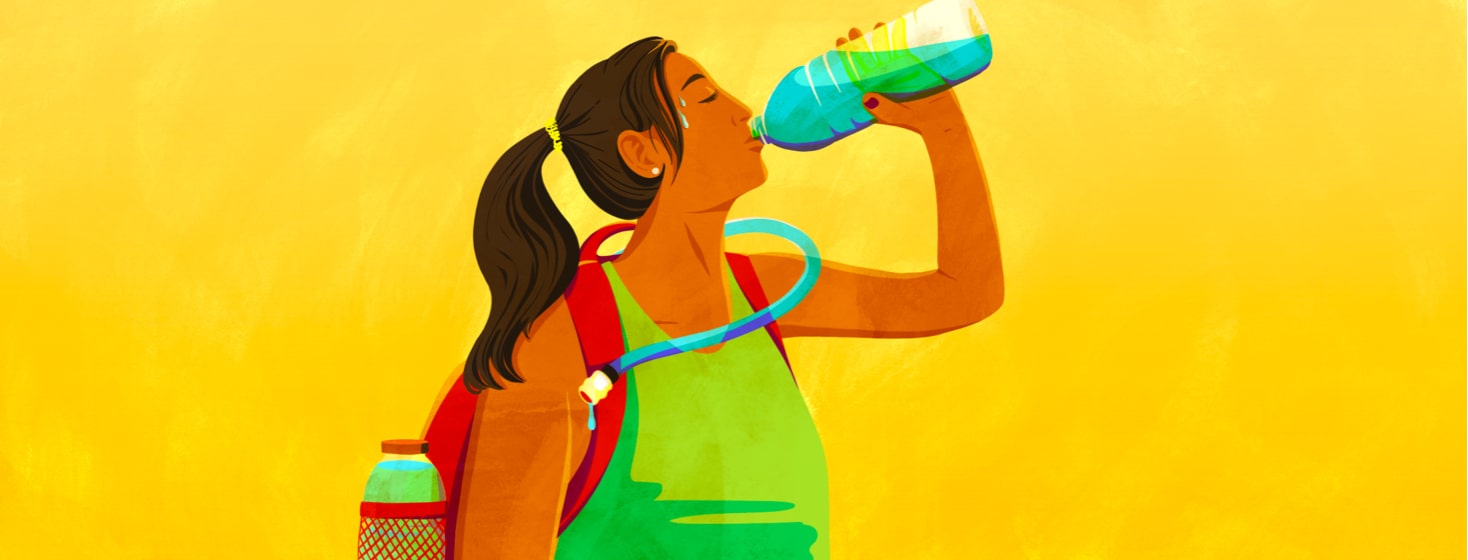Summer Heat and IBS-D: A Recipe for Dehydration
Have you had one of those awful IBS-D flares that leaves you weak and dehydrated? You need to be especially mindful of flares when the temperature starts to rise. A flare and summer heat can spell disaster.
It is often hard to stay hydrated on days when even water seems to send you running for the bathroom. An overactive digestive system can lead to dehydration and vitamin deficiencies. It is important to keep tabs on how your body is reacting to a flare. It is especially important to monitor issues when the heat indices start reaching triple digits.
Signs of dehydration
When you are spending long days outside in the summer heat, pay close attention to your body. Know the signs of dehydration.1
- Feeling thirsty
- Dark urine or urine with a strong odor
- Dizziness
- Fatigue
- Dry mouth, eyes, and lips
- Urinating fewer than 4 times a day
- Sweating less than normal
IBS and dehydration
We all know vomiting can lead to dehydration. So can diarrhea. If you have IBS-D, you often have flares with severe and relentless diarrhea. If you have frequent or severe flares, you are at risk for dehydration. Add summer heat, and you have a significant risk.
A swift-moving digestive system can prevent your body from absorbing what it needs. If you are in the middle of a flare, drink more water. I know you probably hear that all the time, but it really is important to drink enough fluids. Be sure to increase your fluid intake for the duration of a flare. If you have to be outside in the heat, be on the lookout for signs of dehydration.
How to treat dehydration
You should always drink plenty of water to try to prevent dehydration. If you are dehydrated, you need to increase your fluid intake. Mild dehydration can often be cured by drinking lots of water. Sports drinks can help replace lost electrolytes.
If you have severe dehydration or your dehydration does not improve with increased fluid intake, you need to see your doctor right away. You may need intravenous fluids to treat dehydration.
How to prevent dehydration
Drink water. Drink lots of water. If you are working in excessive heat or you are in the middle of a severe IBS flare, consider drinking sports drinks to replace lost electrolytes. Preventing dehydration is important. Stop it before it starts.
While it is important to drink fluids, it is important to drink the right types of fluids. You should avoid caffeinated beverages or sugary drinks. Alcoholic beverages can also cause dehydration when you are working outside in the heat.
Monitoring IBS symptoms and your risk of dehydration
We have plenty to worry about during an IBS flare. This is one more thing to add to that lengthy list of worries. Keep a close eye on your IBS symptoms. I am certain I do not have to remind you because you are probably acutely aware of your symptoms. Once your symptoms start to appear, start drinking more water. Keep drinking more water. If you have to be outside, consider drinking sports drinks as well.
Have you experienced dehydration? What were the first symptoms you noticed? How do you mitigate the risk of dehydration with IBS and summer heat? I would love to hear how you handle this risk.

Join the conversation